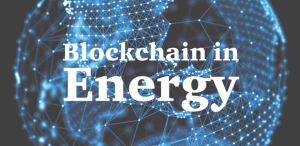Blockchain is transforming the world around us. Introduced to the world by Bitcoin – the world’s most successful and popular cryptocurrency, blockchain has taken a life of its own and is slowly taking over industries. And why not? It’s a revolutionary technology that could instill transparency, promote accountability, and help us streamline processes like never before.
In this article, we look at some of the real-world blockchain implementations that are changing how things are done in respective spheres – from music to governance to insurance to healthcare and more.
Media
Ujo Music is a blockchain platform that lets artists users create, publish, distribute music, get rightfully compensated, and retain full copyrights. The Ujo platform is decentralized and transparent so that artists can see and verify anything without having to consult or rely on a centralized identity.
Transactions to purchase music are conducted directly using Ether. Transactions are also secured using an Ethereum Chrome plugin known as Metamask. This built-in payment infrastructure allows Ujo to provide a blockchain-based streaming service with better convenience and reliability than ‘legacy’ streaming services such as Spotify, Apple Music, and so on.
Real Estate
UbitQuity is a blockchain-based platform that aims to change centuries-old real estate transaction and record-keeping methods. It is one of the first platforms that offers a software-as-a-service (SaaS) to help real estate firms organizations achieve transparency, security, and accountability.
When a transaction takes place, information about the property is automatically recorded on a stack, thus saving time on future searches and increasing confidence of the customer and transparency for the whole process. Also, details of the transaction are immutable (permanent), and the buyer and the seller can both refer to the blockchain for details of the transaction at any time.
Identification
Uport is a company that helps to build and maintain trust between people and organizations by providing a decentralized, blockchain-based identity system. Anyone can register and store a globally unique identity onto the Ethereum blockchain, allowing users to take control of their identity, user accounts, and so on.
Also, users can issue and request credentials – including attestations, verifications, certificates, badges, and more. Uport’s platform also lets users digitally authorize transactions, legal documents, and other material using TouchID authentication. Examples of applications of the Uport include attendees’ verification at the third Developer Conference, registering citizens at Zug, Switzerland, and verifying identity and documents at the Brazil Ministry of Planning.
Manufacturing
LO3 Energy is a blockchain platform that allows users to manage their energy consumption by giving them the ability to generate, buy, store, and sell energy at the community level. To do so, they use Smart meter – an electronic device that records energy consumption, API (Application User Interface), blockchain, and Grid. The API and Grid provide a collaborative network with ‘legacy’ grid systems
The blockchain is for recording transactions and lets everyone on the network – buyer, seller, energy provider, etc. verify and have a copy of transactions. This saves a lot of back and forth time that would be spent verifying transaction details across different parties.
Finance
Aeternity is a smart contract interface that enables organizations to work with real-time and real-world data. The platform’s vision is to provide next-generation, unmatched scalability, and transparent governance.
Aeternity allows users to create smart contracts that become active when network consensus agrees that agreement terms have been met. For example, parties to a transaction could agree that the conditions have been met for automated payment. The consensus is achieved via a hybrid of Proof of Work and Proof of Stake consensus mechanisms.
Healthcare
MedRec is a blockchain platform that allows patients’ health history and data to be stored and accessed across different health providers, individuals, and healthcare specialists. On the part of patients, it helps them to have their medical information right at their fingertips. It also saves time that would have been spent cross-checking patients’ histories, allowing healthcare providers to administer timely care to patients.
MedRec also protects patients’ privacy by not ‘storing’ data directly, but rather encoding metadata (data that give info about other data) through which records can be discreetly accessed by patients, healthcare personnel, and so on.
Supply Chain
Blockverify is a blockchain platform that aims to introduce transparency to supply chains. It’s a “blockchain-based anti-counterfeit solution” with a built-in mechanism for identifying counterfeit products and thus protecting brands.
Blockverify offers a transparent environment where it’s impossible to duplicate products. It will not only detect a counterfeit product already in possession, but it will also identify a product that has been diverted from its original destination and track it down. It can track fraudulent transactions of any type throughout the chain. Also, companies do not need to rely on trust because every step of the system is open for every participant to see.
Cybersecurity
Remme is a cybersecurity blockchain project that aims to protect users’ and companies’ data from cyber attacks. Its goal is to improve from the current standards of security to public key infrastructure (PKI) apps for the modern web. Its products include a protocol that uses block producers to provide consistency and fault tolerance. They also enable companies to register keys on the Remme blockchain, as well as validate transactions by combining them into blocks.
Remme utilizes a delegated proof of consensus to allow block producers to validate the information that will be appended on the blockchain and ensures nodes are in agreement about the priority of how entries will be added. Its KeyHub product helps to track expired certificate dates, potential vulnerabilities, and any policy violations in the system.
Data Management
Factom is a company that aims to protect businesses, governments, and non-profits from data theft and instill transparency in systems. It provides data-layer technology to preserve and validate digital assets. It uses a Backend as a Service (BaaS) platform that makes it easy to secure data by employing a cryptographically unique fingerprint of the data, enabling clients to audit and share sensitive documents.
By using blockchain, organizations can achieve transparency, integrity, and security of data and also enable them to meet compliance and identity requirements. The Factom software can be used on a plug and play basis, allowing users to use it on the go without having to build an infrastructure from scratch.
Content Distribution
Paperchain is a blockchain solution that enables companies, artists, news organizations, etc. to have a decentralized, peer-to-peer marketplace. In this environment, parties can push their content and get paid for it while circumventing the current industry’s convoluted payment cycles.
It aims to solve the problem in the current distribution and payment model where content creators can get paid months away from the time content is consumed for the first time. Paperchain takes the data of that content consumption, prices it, and closes the payment gap on the spot, so that content owners can get paid the same day.
Advertising
NYIAX is a blockchain software solution that allows advertisers to trade advertising contracts via the use of a patented financial matching engine. Advertisers can buy, sell, and rent digital ad space as guaranteed contracts with complete clarity and transparency – thus boosting confidence among all parties.
As advertisers and other players trade advertising inventory, the use of distributed ledger and smart contracts offers an immutable and open record of transactions. Also, blockchain-based smart contracts automate the process, providing better returns on investment by reducing labor costs during the deal lifecycle.
Insurance
AIG, the international insurance company, is using blockchain technology to enable faster, borderless, and collaborative policy creation. The blockchain solution is based on Hyperledger Fabric. Coordinating and placement of insurance policies in multiple countries is a time-consuming and very complex process. This is where blockchain comes in. It helps the company streamline complex multinational processes and facilitate real-time sharing of policy information.
It also instills trust and transparency in the risk evaluation, and analyzing the process, enabling AIG to provide multinational insurance services more efficiently. Overall, the blockchain solution helps AIG achieve a new level of trust, reduce errors, clear backlog, and provide faster and more reliable services to clients.
Governance
Democracy Earth is an ambitious project to solve world issues like forced migration, terrorism, and unequal resource distribution through open-source decision-making software based on blockchain. The software can be used by both large and small institutions – “from the most local involving two people to the most global involving all of us.”
With this open-source, peer-to-peer decision-making network, Democracy Earth hopes political intermediation or political leadership will no longer be necessary. The project is currently building Sovereign, decentralized, and open-source democratic governance that can be used by any organization. The end goal of Democracy Earth is to have liquid democracy, complete ownership of personal data, borderless governance and censorship-resistant voting, debates, and ideas.
Conclusion
Blockchain is here to stay, and it will change how we interact with our environment and even with each other. It has the potential to help us achieve levels of transparency never seen before, make processes quicker, and cut red tape. Industry leaders need to shift their focus and incorporate blockchain in their businesses, which will not just improve how we conduct business but also society itself.





